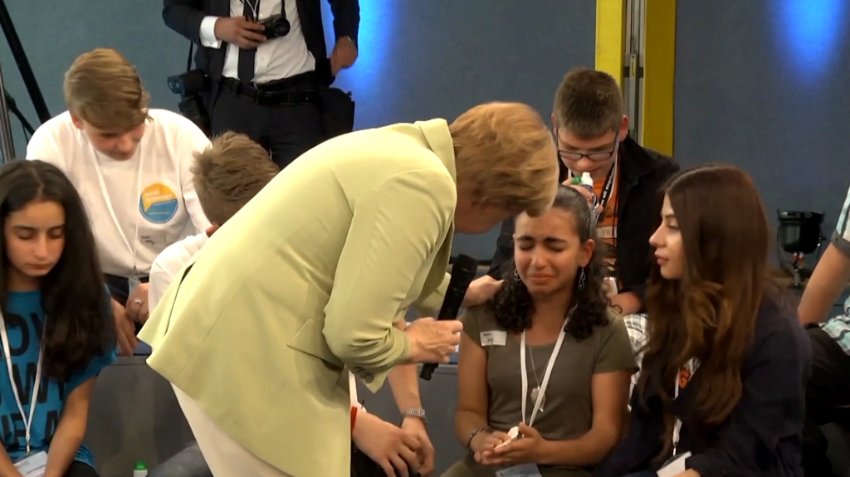In the span of six days, German chancellor Angela Merkel has made a teenage Palestinian refugee cry with her government’s stand on refugee and immigration policy (then tried to pet her, in what must be one of her most cringe-worthy moments as chancellor), reiterated her increasingly isolated position in Europe in opposition to LGBT marriage equality and almost allowed her finance minister Wolfgang Schäuble to force Greece out of the eurozone, in the process undermining Merkel’s authority both at home and within the wider eurozone.![]()
Some week.
Merkel, who won a narrower-than-expected victory in the 2005 election, reached the apex of her political power in September 2013, when her governing Christlich Demokratische Union Deutschlands (CDU, Christian Democratic Union) nearly won an absolute majority in the country’s parliamentary elections. Despite being forced back into a ‘grand coalition’ with the rival center-left Sozialdemokratische Partei Deutschlands (SPD, Social Democratic Party), Merkel’s popularity crested. At long last, she had won a clear personal mandate for her cautious, seemingly ideology-free leadership.
But when faced with policy issues — like Greece, LGBT rights and immigration — featuring such sharp contrasts, Merkel’s popularity was always going to fall from those stratospheric levels.
The crisis over Greece’s future highlighted the limits of Merkel’s conciliatory governing style — to sit back, wait for a consensus to emerge and follow public opinion, even (or especially) if it means co-opting a rival party’s positions. That’s how Merkel has handled everything from nuclear power to raising the minimum wage. But there’s a limit to that kind of governance. Continue reading Has Germany (and Europe) reached peak Merkel?
